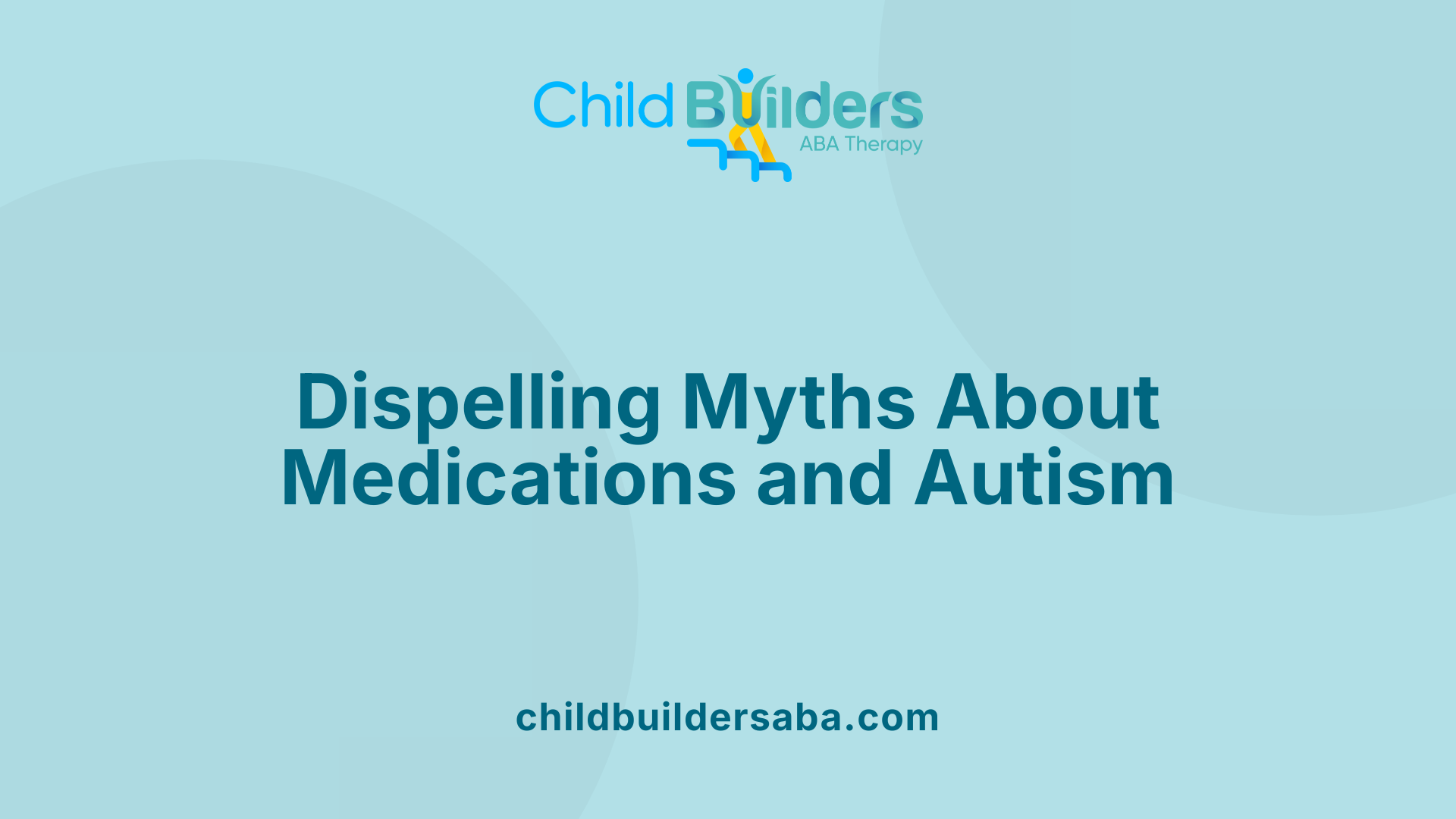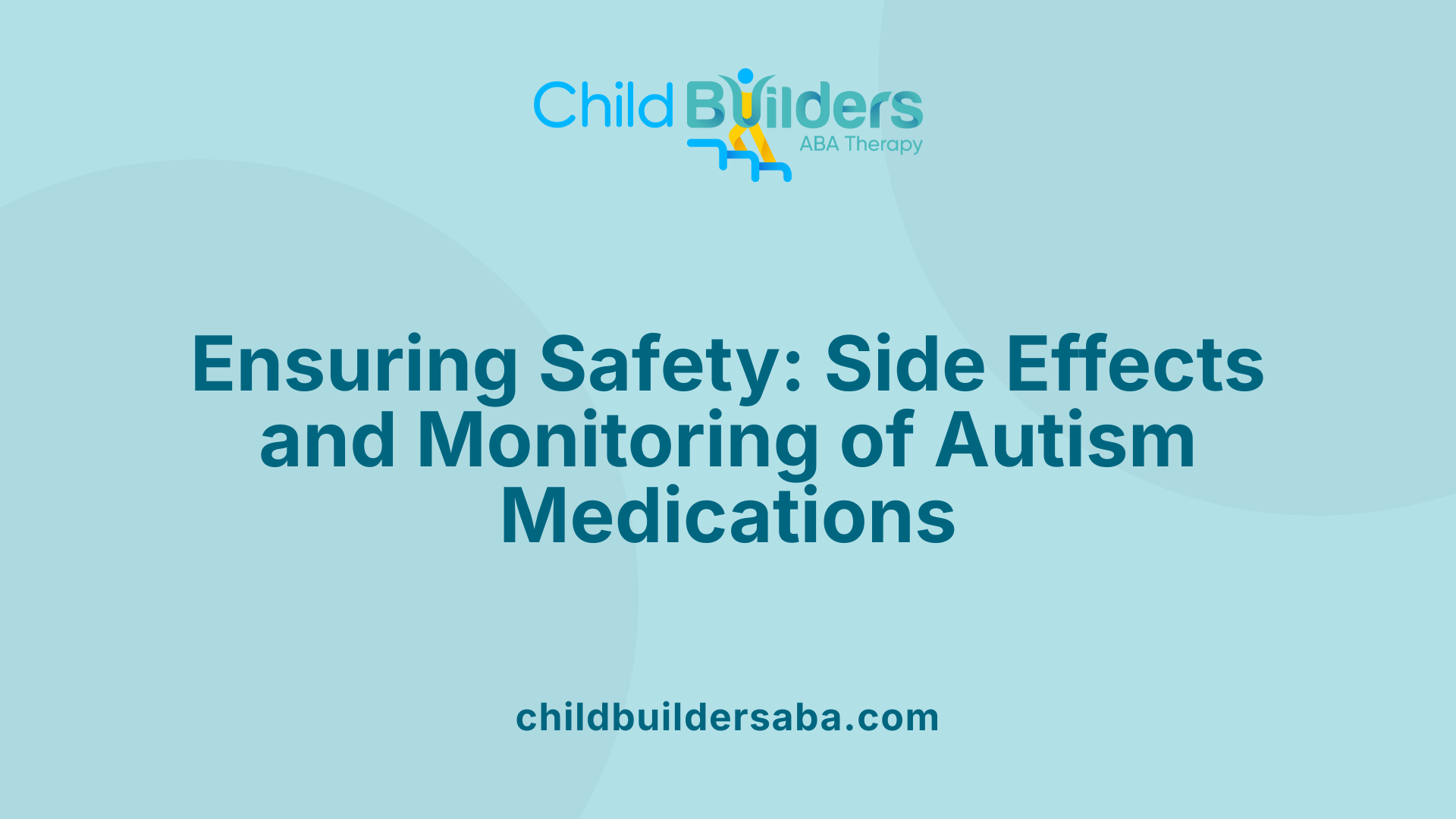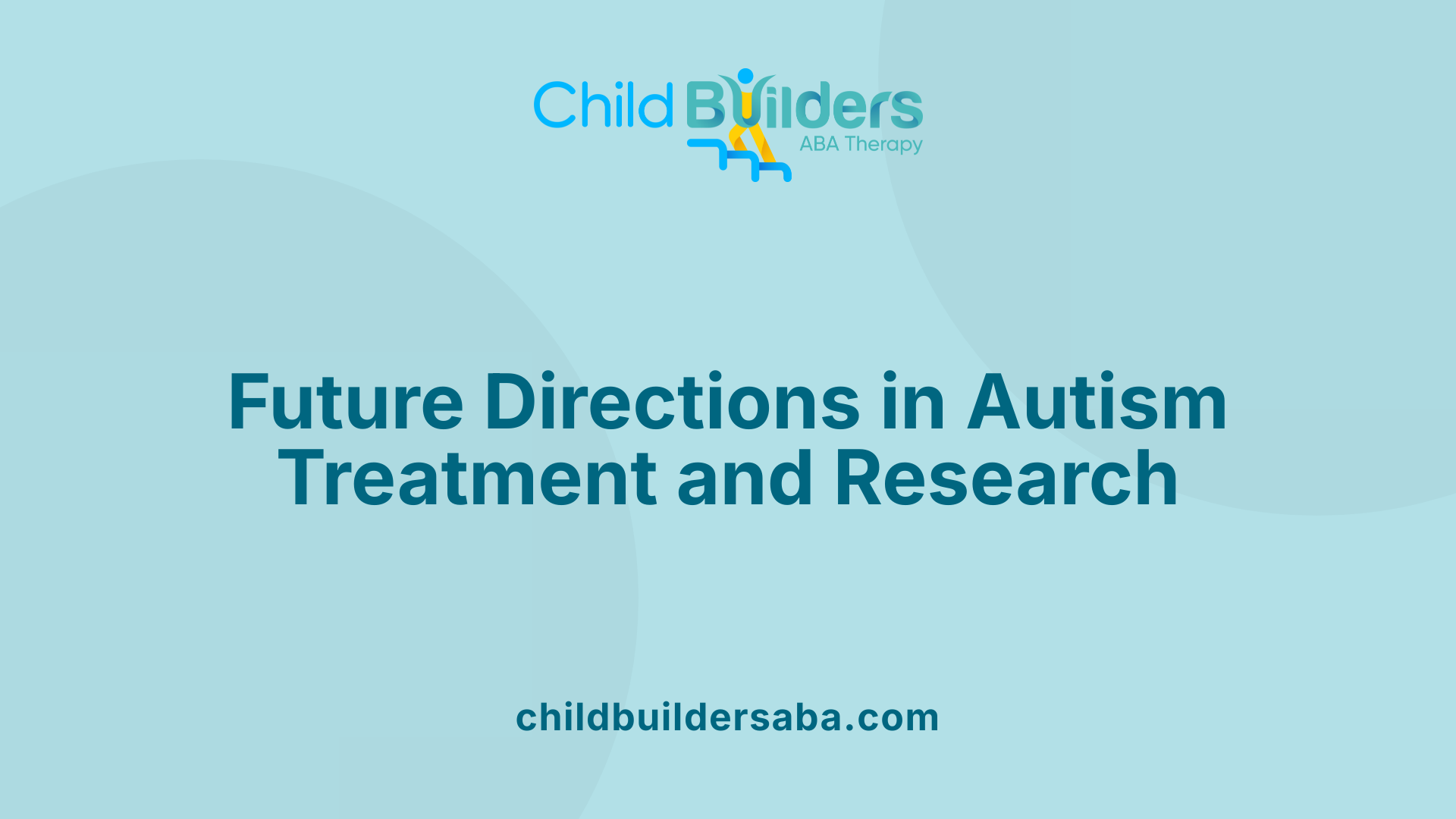Medication for Autism

Understanding Medication Use in Autism
Autism spectrum disorder (ASD) is a complex neurodevelopmental condition characterized by challenges in social interaction, communication, and repetitive behaviors. While there is currently no cure for autism, medications can play a significant role in managing associated symptoms and improving quality of life. This article explores the current state of pharmacological treatments, including approved drugs, off-label use, safety considerations, ongoing research, and the importance of comprehensive care.
Current FDA-Approved Medications for Autism Symptoms

Which medications are approved for autism spectrum disorder?
Currently, only two medications have received approval from the U.S. Food and Drug Administration (FDA) specifically for treating symptoms related to autism spectrum disorder (ASD). These are risperidone (brand name Risperdal) and aripiprazole (brand name Abilify). Risperidone is approved for children aged 5 to 16 years, while aripiprazole is approved for children aged 6 to 17 years.
These medications primarily address irritability, aggression, and mood disturbances associated with ASD. They are not designed to treat the core features of autism, such as communication difficulties, social challenges, or repetitive behaviors.
Target symptoms such as irritability and aggression
Risperidone and aripiprazole help reduce behaviors like tantrums, self-injury, and aggressive outbursts. They can improve a child's ability to engage in learning and social activities by managing these disruptive behaviors.
However, these medications are most effective when used alongside behavioral therapies, educational programs, and other supportive interventions. The goal is to support overall functioning and quality of life.
Limitations regarding core autism symptoms
It is important to understand that none of the FDA-approved drugs target the fundamental aspects of autism. They do not improve communication, social interaction, or repetitive behaviors directly. Instead, these medications serve as tools to manage specific, challenging behaviors.
Ongoing research aims to find medications that can better address the core symptoms of ASD. Until then, comprehensive treatment plans combining medication with therapeutic approaches remain the standard for supporting individuals with autism.
| Medication | Approved Age Range | Purpose | Limitations | Other Notes |
|---|---|---|---|---|
| Risperidone | 5–16 years | Reduce irritability, aggression | Does not improve core autism symptoms | Monitor weight and hormonal effects |
| Aripiprazole | 6–17 years | Reduce irritability, agitation | Limited to behavioral management | Watch for movement side effects |
Overall, these medications are valuable tools but must be prescribed and monitored carefully to ensure safety and effectiveness.
Medications Used to Manage Behavioral Challenges
What strategies for managing behavioral issues in autism with medication?
Managing behavioral issues in autism primarily involves careful selection and use of medications tailored to each individual's symptoms. The most well-established medications include FDA-approved antipsychotics like risperidone and aripiprazole, which are effective in reducing irritability, aggression, and severe disruptive behaviors. These medications are prescribed with caution due to potential side effects like weight gain and sedation, requiring close medical supervision.
Beyond these, other drugs are used to target specific symptoms. Selective serotonin reuptake inhibitors (SSRIs) such as fluoxetine may help with repetitive behaviors and anxiety. Stimulant medications like methylphenidate (Ritalin) are sometimes used to improve attention and reduce hyperactivity, especially when combined with other therapies.
It is crucial to monitor the effects of these medications continuously. Side effects vary among individuals and can include weight changes, sleep disturbances, and hormonal effects, particularly with antipsychotics. Healthcare providers often rely on a trial-and-error approach to find the most effective and tolerable regimen.
Most effective management combines medication with behavioral interventions. Therapy methods like applied behavior analysis (ABA) and social skills training are used alongside pharmacological treatment to improve daily functioning and developmental progress. This integrated approach helps maximize benefits while minimizing side effects.
In summary, managing behavioral issues in autism with medication revolves around personalized treatment plans, vigilant monitoring, and combining drugs with non-pharmacological therapies for the best outcomes.
Treatment Strategies and Supportive Therapies
What are behavioral, developmental, and educational therapies?
Behavioral therapies, such as Applied Behavior Analysis (ABA), are widely supported for improving social skills and reducing problematic behaviors. Developmental therapies like DIR (Floortime) focus on emotional and relational development, while educational programs like TEACCH adapt classroom strategies to meet individual needs. Speech, occupational, and sensory integration therapies further support communication and functional skills.
Why is combining different approaches beneficial?
Using a blend of behavioral, developmental, educational, and sometimes medical treatments provides a comprehensive support system. Medications can manage symptoms like irritability or hyperactivity, but therapies focus on skill development and daily functioning. Their combined use often leads to better outcomes and improved quality of life.
Why is an individualized treatment plan important?
Each person with autism has unique strengths and challenges. Tailoring therapies and medication to the individual ensures the most effective support. Regular evaluation helps modify strategies as needs change, leading to more successful management of symptoms and better long-term development.
| Treatment Component | Purpose | Typical Strategies | Notes |
|---|---|---|---|
| Behavioral therapy | Reduce problematic behaviors | ABA, social skills groups | Evidence-based, often first choice |
| Developmental therapy | Build emotional and relational skills | DIR, Floortime | Focuses on developmental milestones |
| Educational therapy | Enhance learning in classroom | TEACCH, visual supports | Customized to learning style |
| Speech & occupational therapy | Improve communication & daily skills | Speech therapy, sensory integration | Supports independence |
| Medications | Manage co-occurring symptoms | Antipsychotics, SSRIs, AEDs | Used alongside therapies for best results |
How do these approaches work together?
An effective treatment plan coordinates therapies and medications to support individual growth. For example, behavioral therapy can focus on reducing aggression while medication helps control irritability. This comprehensive approach helps children develop essential skills and better manage their symptoms.
Medications for Adults with Autism
Are there medications available for adults with autism?
Yes, medications are available for adults with autism, primarily to manage specific symptoms rather than the core features of autism itself.
FDA-approved drugs like risperidone and aripiprazole can help reduce irritability, aggression, and some repetitive behaviors in both children and adults. These medications are often prescribed when symptoms like agitation or severe behavioral issues interfere with daily life.
Beyond these, other medications are frequently used off-label to support mental health and behavioral needs. Selective serotonin reuptake inhibitors (SSRIs) may help manage anxiety, obsessive behaviors, and depression. Stimulants, such as methylphenidate, are used if there are co-occurring attention-deficit/hyperactivity disorder (ADHD) or hyperactivity symptoms.
Seizures are common in autistic adults, and anticonvulsant drugs effectively treat epileptic episodes. The choice of medication depends heavily on individual symptoms and health status, requiring close collaboration with healthcare providers.
Since autism manifests uniquely in each person, medication plans should be tailored to individual profiles. Regular monitoring helps identify side effects early and adjust treatments as needed. Consulting with healthcare professionals ensures safe, effective management of symptoms, improving overall quality of life for adults living with autism.
Addressing Misconceptions and Clarifying Expectations

Are there misconceptions about medications for autism?
Yes, many misconceptions exist regarding the role of medications in autism spectrum disorder (ASD). A prevalent myth is that medication can cure autism or eliminate all of its symptoms. However, this is not the case. Current medical treatments do not address the core aspects of autism, such as communication difficulties, social challenges, and repetitive behaviors.
Instead, medications are primarily used to manage specific symptoms or co-occurring conditions associated with autism. For example, certain drugs can help reduce irritability, aggression, anxiety, or sleep disturbances. Notably, only two medications, risperidone and aripiprazole, are approved by the FDA specifically for treating irritability in children with autism.
Understanding these distinctions is crucial. Autism is a lifelong neurodevelopmental condition present from birth, and its root causes are complex. It is not caused by parenting, diet, or vaccines—theories that have been thoroughly discredited.
Medical treatments should be part of a comprehensive support plan that includes behavioral therapies, educational strategies, and family support. Relying solely on medication without appropriate behavioral and developmental interventions can limit overall progress.
By focusing on evidence-based practices, families and caregivers can set realistic expectations and avoid false hopes of a cure, instead aiming to improve quality of life and functional skills for individuals with autism.
Safety, Side Effects, and Monitoring

What should caregivers know about the safety and side effects of autism medications?
Caregivers need to be well-informed about the potential risks and side effects associated with medications used to manage autism symptoms. While drugs like risperidone and aripiprazole can be effective in reducing irritability and aggression, they may also cause side effects such as weight gain, increased appetite, drowsiness, and movement-related issues like restlessness or tremors.
It is crucial to work closely with healthcare professionals to monitor the child's health regularly. Before starting medication, underlying medical or sensory problems should be addressed, and other causes of behavioral issues should be ruled out. Regular check-ups help detect any adverse reactions early and ensure that the medication is providing the intended benefit.
Caregivers should keep a detailed record of behavioral changes and side effects, communicate any concerns with the medical team, and adhere to prescribed medication schedules. Stopping a medication suddenly can cause adverse effects, so it is essential to consult healthcare providers before making any adjustments.
In summary, understanding the risks, ongoing monitoring, and open communication with healthcare providers are fundamental to ensuring the safe and effective use of medications for autism spectrum disorder.
Emerging Research and Future Directions
 As science continues to advance, researchers are exploring new medicines and personalized approaches to treat autism spectrum disorder (ASD). Many promising medications are under investigation, including oxytocin, bumetanide, and cannabinoids, which aim to target core symptoms like social difficulties and repetitive behaviors.
As science continues to advance, researchers are exploring new medicines and personalized approaches to treat autism spectrum disorder (ASD). Many promising medications are under investigation, including oxytocin, bumetanide, and cannabinoids, which aim to target core symptoms like social difficulties and repetitive behaviors.
In addition to new drugs, efforts are underway to use genetic and neurobiological markers for more tailored treatments. Scientists are examining techniques such as EEG and eye-tracking to identify biomarkers that can predict individual responses to specific medications. This personalized approach seeks to improve effectiveness and reduce side effects.
Clinical trials play a vital role in testing these potential therapies. Some medications, like risperidone and aripiprazole, are already FDA-approved for managing irritability. Others, including arbaclofen and trofinetide, are in different stages of research to evaluate their safety and efficacy in addressing core autism symptoms.
The future also involves integrating pharmacological treatments with behavioral therapies. Efforts are being made to refine medication protocols, monitor side effects more effectively, and enhance communication between healthcare professionals and families. This holistic approach aims to improve quality of life and support for individuals with ASD.
Overall, current research is moving toward more precise, individualized therapies that could transform autism treatment in the coming years, with hope for more effective management of symptoms and better long-term outcomes.
Towards Better Management of Autism-Related Challenges
While medications do not cure autism, they can significantly improve many associated symptoms, providing better opportunities for affected individuals to benefit from behavioral and educational interventions. Ongoing research promises new and more targeted therapies, offering hope for more effective treatments in the future. Working closely with healthcare professionals is crucial to ensure safe and effective medication use, tailored to each individual's unique needs, and complemented by comprehensive behavioral support. As understanding advances, the goal remains to enhance the quality of life for those on the autism spectrum through safe, evidence-based pharmacological options and holistic care approaches.
References
- Medication Treatment for Autism | NICHD
- Medicines for Treating Autism's Core Symptoms
- What Are the Treatments for Autism Spectrum Disorder? - WebMD
- Autism spectrum disorder - Diagnosis and treatment - Mayo Clinic
- List of 13 Autism Medications Compared - Drugs.com
- Treatment and Intervention for Autism Spectrum Disorder - CDC
- Pharmacological treatment in autism: a proposal for guidelines on ...
- Pharmacological Therapies for Autism Spectrum Disorder: A Review
- Which medications are commonly prescribed for autistic people and ...

























.jpg)











































































